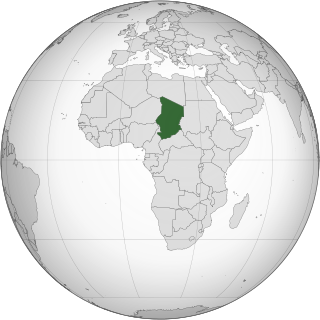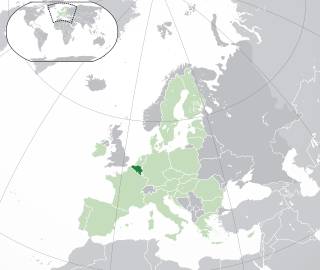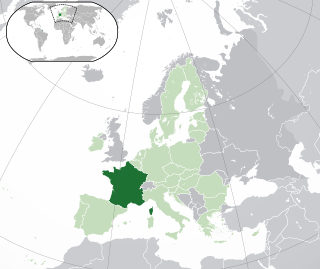
The national flag of Luxembourg consists of three horizontal stripes, red, white and light blue, and can be in 1:2 or 3:5 ratio. It was first used between 1845 and 1848 and officially adopted in 1993. It is informally called in the country, «rout, wäiß, blo».

Schengen is a small wine-making village and commune in far south-eastern Luxembourg, on the western bank of the river Moselle. The commune border includes the tripoint where the borders of Germany, France, and Luxembourg meet.
Same-sex marriage has been legal in Luxembourg since 1 January 2015. A bill for the legalisation of same-sex marriages was enacted by the Chamber of Deputies on 18 June 2014 and signed into law by Grand Duke Henri on 4 July. Polling suggests that a majority of Luxembourgers support the legal recognition of same-sex marriage. Luxembourg was the last Benelux country, the tenth in Europe and the sixteenth in the world to allow same-sex couples to marry nationwide.

Lesbian, gay, bisexual, and transgender (LGBT) people in Chad face legal challenges not experienced by non-LGBTQ residents. Both male and female forms of same-sex sexual activity are illegal in the country. Before the new penal code took effect in August 2017, homosexual activity between adults had never been criminalised. There is no legal protection against discrimination based on sexual orientation and gender identity.

Lesbian, gay, bisexual, and transgender (LGBT) people in Mali face legal and societal challenges not experienced by non-LGBTQ residents. Although same-sex sexual activity is not illegal in Mali, LGBT people face widespread discrimination among the broader population. According to the 2007 Pew Global Attitudes Project, 98 percent of Malian adults believed that homosexuality is considered something society should not accept, which was the highest rate of non-acceptance in the 45 countries surveyed. The Constitution of Mali has outlawed same-sex marriage since 2023.

Lesbian, gay, bisexual, and transgender (LGBT) rights in Belgium are regarded as some of the most progressive in Europe and the world. In 2023, ILGA-Europe ranked Belgium as second in the European Union for LGBT rights protection, behind Malta. In 2024, ILGA-Europe ranked Belgium the third highest after Malta and Iceland.

Lesbian, gay, bisexual, and transgender (LGBT) rights in France are some of the most progressive by world standards. Although same-sex sexual activity was a capital crime that often resulted in the death penalty during the Ancien Régime, all sodomy laws were repealed in 1791 during the French Revolution. However, a lesser-known indecent exposure law that often targeted LGBT people was introduced in 1960, before being repealed in 1980.

Lesbian, gay, bisexual, and transgender (LGBT) people in Monaco may face legal challenges not experienced by non-LGBTQ residents. Both male and female types of same-sex sexual activity are legal in Monaco. However, same-sex couples and households headed by same-sex couples are not eligible for the same legal protections available to opposite-sex married couples. Monaco is the least developed among Western European countries in terms of LGBT equality.

Lesbian, gay, bisexual, and transgender (LGBT) rights in Switzerland are some of the most progressive by world standards. Social attitudes and the legal situation have liberalised at an increasing pace since the 1940s, in parallel to the situation in Europe and the Western world more generally. Legislation providing for same-sex marriage, same-sex adoption, and IVF access was accepted by 64% of voters in a referendum on 26 September 2021, and entered into force on 1 July 2022.

Lesbian, gay, bisexual, and transgender (LGBT) people in Burundi face legal challenges not experienced by non-LGBTQ citizens. While never criminalized before 2009, Burundi has since criminalized same-sex sexual activity by both men and women with a penalty up to two years in prison and a fine. LGBT persons are regularly prosecuted and persecuted by the government and additionally face stigmatisation among the broader population.

radio 100,7 is a public service radio station in the Grand Duchy of Luxembourg. Broadcasting in the Luxembourgish language, the station's principal focus is on culture and information, although entertainment – in the form of a relatively wide spectrum of music, with the accent on classical – also features prominently.

Lesbian, gay, bisexual, and transgender (LGBT) rights in Mauritius have expanded in the 21st century, although LGBT Mauritians may still face legal difficulties not experienced by non-LGBTQ residents. Prior to 2023, sodomy was criminalized by Section 250 of the Criminal Code. However, Mauritius fully decriminalized homosexuality in October 2023. Although same-sex marriage is not recognized in Mauritius, LGBT people are broadly protected from discrimination in areas such as employment and the provision of goods and services, making it one of the few African countries to have such protections for LGBT people. The Constitution of Mauritius guarantees the right of individuals to a private life.
Abortion in Luxembourg was liberalized on 15 November 1978. Before the end of 12 weeks after conception, a woman who determines herself to be "in distress" can obtain an abortion after two consultations with a doctor, one medical and one psycho-social, and a waiting period of at least three days. An abortion at later stages can only be obtained when two doctors certify there is a danger to the mother or fetus. Under-age patients must be accompanied by a trusted adult to the meetings and the procedure itself. Abortions may be performed in hospitals, clinics, and a doctor's surgery.

The law opening marriage to same-sex couples, no. 2013-404 is a French law which, since 18 May 2013, grants same-sex couples the right to marry and jointly adopt children.

The French constitution of 4 October 1958 was revised many times in its early years. Changes to this fundamental law have become more frequent since the 1990s, for two major reasons:
- public projects for institutional modernization
- adaptation to European Union and other international law.

Lex Delles is a Luxembourgish politician. He was mayor of Mondorf-les-Bains, Member of the Chamber of Deputies, he served as Minister for Small and Medium-Sized Enterprises and Minister for Tourism in the second Bettel Government and, from 17 November 2023 on, serves as Minister of Economy, SMEs and Engery and Tourism in the Frieden-Bettel Government.

Lynn Bertholet is a transgender Swiss woman, bank executive and photomodel. She is also co-founder and chairperson of charity ÉPICÈNE, a volunteer public utility body which aims to welcome and support anyone facing transidentity issues.
InterAction is a Swiss organization for intersex people, parents, friends and allies to educate, provide peer support and address human rights issues.
The Collectif intersexe activiste - OII France, until 2022 known as the Collectif intersexes et allié.e.s, abbreviated to CIA-OII France, is a not-for-profit association founded in 2016 by Loé Petit and Lysandre Nury. It aims to defend and support intersex people.

Lehrhof is a village in northwestern Luxembourg. It has a population of 17 as of 2024.

















